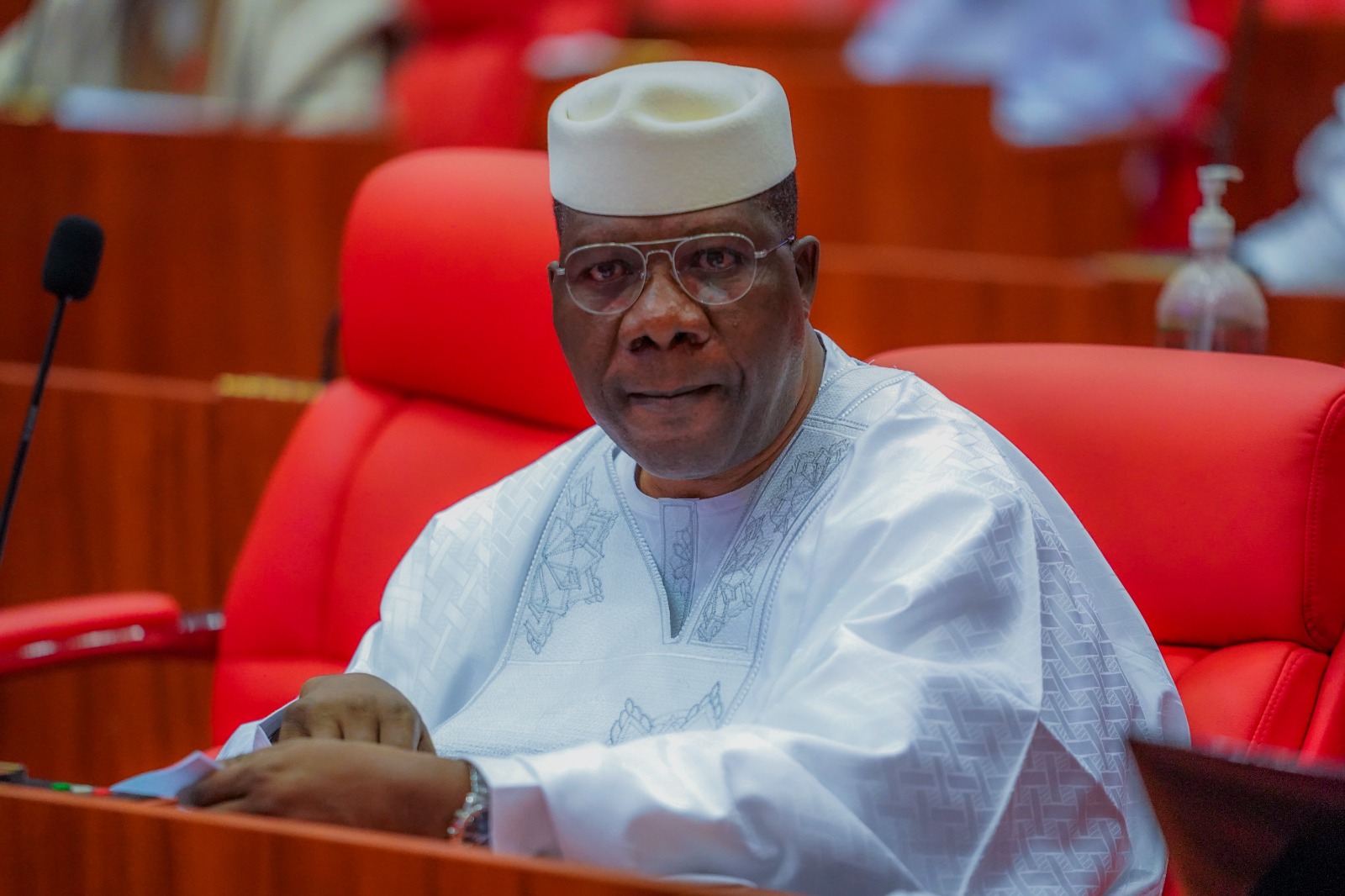Insists N’Assembly will pass 2023 appropriations bill on Dec. 30
The Leader of the Senate, Senator Opeyemi Bamidele has revealed that the federal government will, from next year, go after economic saboteurs who made lives difficult and unbearable for Nigerians.
Bamidele, also Chairman of the Southern Senators Forum in the ninth National Assembly, insisted that the National Assembly would pass the 2024 appropriations bill on December 30 to sustain the January-December budget cycle.
He made this disclosure at a session with journalists in Iyin Ekiti on Monday, saying all federal lawmakers would have to cut short their holidays to ensure speedy passage of the 2024 appropriations bill.
At the session, Bamidele expressed grave concerns about the activities of economic saboteurs who were doing everything to keep exchange rates high against the Naira or trying to make the Naira unavailable to the people who kept their money in banks.
He therefore revealed that the federal government “will, from next year, go after economic saboteurs who are making life difficult and unbearable for Nigerians. The federal government will charge, prosecute and punish them for their acts of economic sabotage.
“All these will take place next year. In the long run, those who mopped up the Naira and Dollars from the markets will face the consequences of their actions. Those who mopped up the Dollars to keep commodity prices will definitely not escape justice.
“Those who are speculating are also on the watch list of the federal government. At some points, the federal government will have to go after them,” the senate leader revealed the plan of the federal government.
Beyond all these activities of economic saboteurs, Bamidele assured Nigerians that Nigeria would witness a true era of Renewed Hope that would herald development, progress and prosperity, citing diverse plans the administration of President Bola Ahmed Tinubu had put in place to transform the national economy.
He revealed the plan of the federal government “to invest heavily in agriculture and agro-allied industries. We are equally doing all we can to harness our solid minerals potential as much as what we derive from the sale of crude oil. We are determined to sustain the daily production of 1.7 million barrels.”
Providing further updates on the 2024 appropriation bill, the senate leader assured Nigerians that the National Assembly would pass the budget on December 30.
“To ensure the passage of the budget, We abridged time to make all ministries, departments and agencies appear before the joint sitting of all the relevant committees of both the Senate and House of Representatives.
“This has already reduced the time for the budget defence process by half rather than appearing before the Senate first and House of Representatives later. The resolution has also removed the need for harmonisation. In essence, we have been able to save time.
“We have also been sitting beyond our regular sitting days. We have sat on Saturdays. We may even sit on Sunday as we are approaching another year. We only give ourselves three days to go home and celebrate Christmas.
“We are reconvening on December 29. Our hope and determination is to pass by December 30. On January 1, 2024, Mr President will have the 2024 appropriation bill at his desk for assent so that its implementation can take off in earnest,” Bamidele explained.
Speaking about the consequence of fuel subsidy removal, Bamidele said the federal government was not unmindful of its impact on Nigerians, though defended the decision of the federal government to it.
He explained that the federal government took the decision in the best interest of Nigerians because Nigerians were not really benefiting from the fuel subsidy regime.
He said: “We are not unmindful of the immediate impact of the fuel subsidy removal. But we are convinced subsidy removal is a right decision taken because no other person than a cabal in the oil and gas industry and their promoters in the government were benefitting from the fuel subsidy regime.
“No one else is actually benefiting from the fuel subsidy. It was not about the people because the masses were not benefitting from it in any way. It was a major source of bleeding in our economy.
“This administration did the right thing by putting an end to the fuel subsidy regime. Part of what we have seen after the fuel subsidy removal was a fight back from those who were the beneficiaries of the fuel subsidy regime.
“They are doing everything possible to make sure the pump price of premium motor spirit goes up because we are more of a consumer economy. We do not produce. A lot of things we are consuming in Nigeria are imported.
“What this means is that if Naira is devalued either consciously against the Dollars or commodities imported to Nigeria, we have to spend more to bring these things. The supplier will have to sell them at a higher rate. This trend is making commodity prices go out of the reach of the Nigerians.
“People’s income has not increased. Yet, they have to pay double for a bag of rice today compared to what they paid one or two years ago. This is extremely painful for all Nigerians. How many Nigerians can afford a bag of rice today without a corresponding increase in their income?
“Nigerians are working so hard. But the prices are rising out of their purchasing powers. These are some of the immediate effects of very drastic economic decisions taken by the federal government. But its long term effect will, God’s grace, stabilise the economy.”

